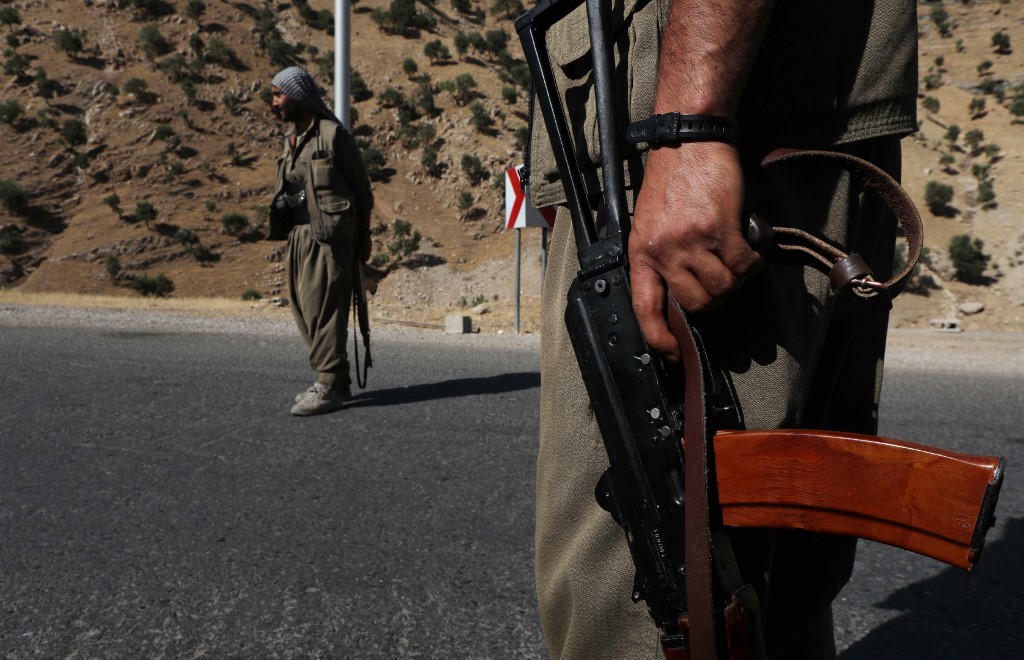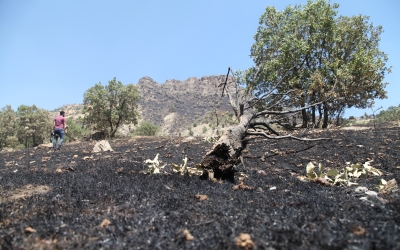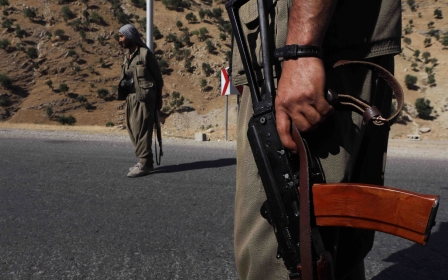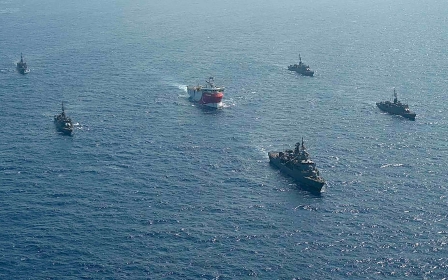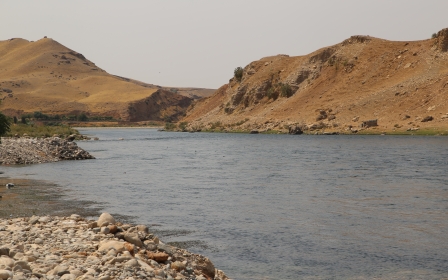Iranian-Turkish deal to fight PKK risks harming stability of Iraq's Kurdish region
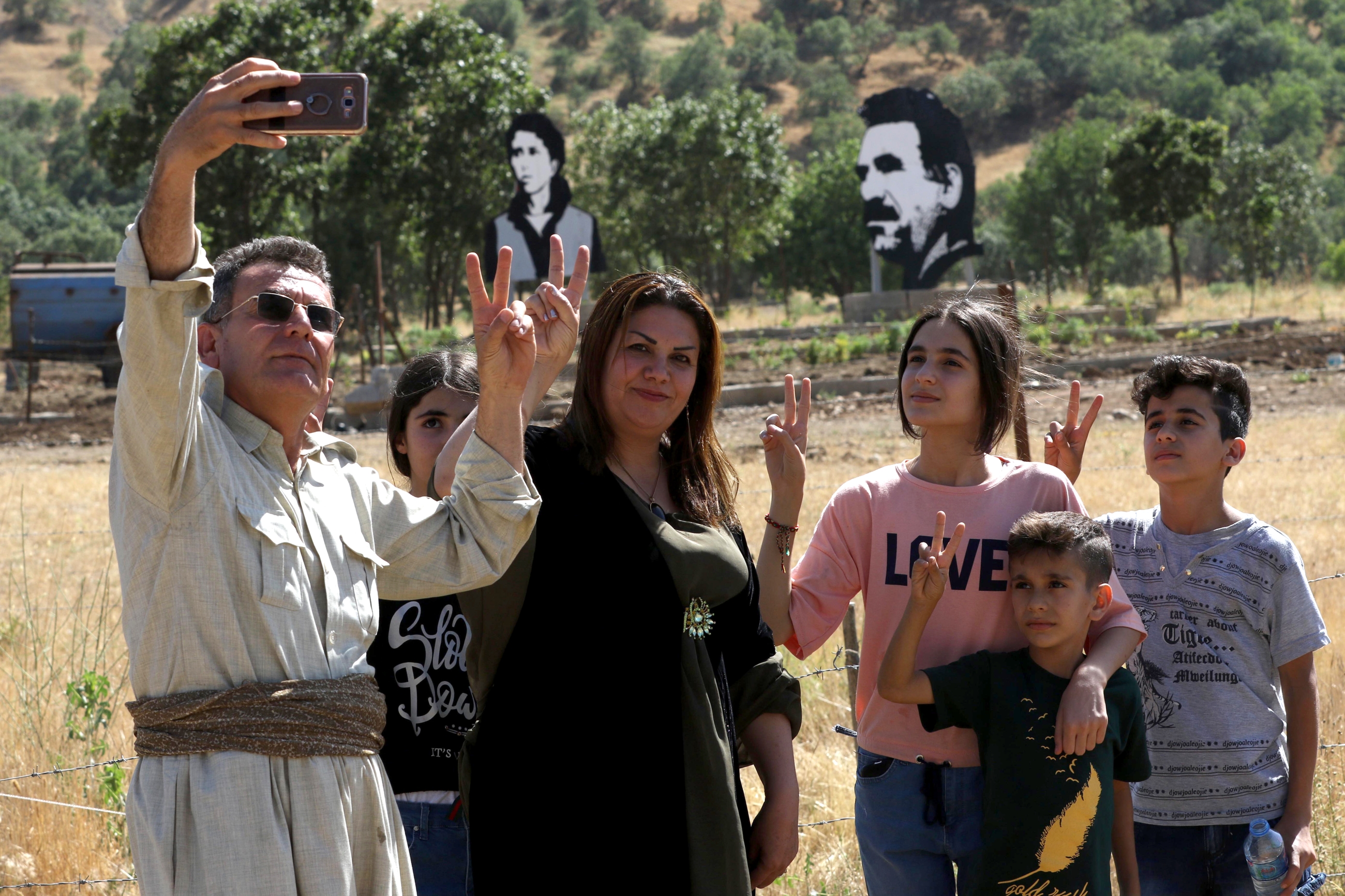
A joint declaration between Iran and Turkey to coordinate efforts to fight armed Kurdish groups in Iraq has provoked alarm in some quarters, over fears that an escalation of fighting could further destabilise an already tense region.
The 8 September announcement between the two countries could also cause trouble for Iraq's autonomous Kurdistan Regional Government (KRG), at a time when it is in vital negotiations with the central government in Baghdad.
Turkey launched air and ground operations against the Kurdistan Workers' Party (PKK) in mid-June in the Haftanin area in the northern Duhok province. This was followed by artillery and drone attacks by Iran on bases belonging to Iranian Kurdish opposition groups in the mountains of Erbil province, adjacent to Iran.
'The Turkish and the Iranian regimes each follow expansionist policies outside their borders and authoritarian policies within their borders'
- senior PKK official
The PKK, its affiliated Iranian offshoot the Kurdistan Free Life Party (PJAK), and other unaffiliated opposition groups such as the Kurdistan Democratic Party of Iran (KDPI), have fought Turkey and Iran respectively for decades, demanding greater autonomy for the Kurdish minorities in each country.
A senior official in the PKK, who preferred to remain anonymous, told Middle East Eye that Iran and Turkey both coveted territory in neighbouring countries.
"The Turkish and the Iranian regimes each follow expansionist policies outside their borders and authoritarian policies within their borders," he said.
"Dissent, the PKK and PJAK stand out as calls for freedom and democracy. That's why both regimes make joint plans to attack the PKK and PJAK."
He said the PKK's nearly 40-year war with the Turkish state, which has seen more than 40,000 people killed and human rights abuses on all sides, was a "legitimate self-defence struggle".
He added that he believed the primary agenda behind Turkish President Recep Tayyip Erdogan’s military operations in Iraq and neighbouring Syria was the annexation of the Kurdish-majority territories in both countries.
Promises of resistance
Iran and Turkey's September statement said it was "incumbent upon both countries to fully utilise the existing cooperation mechanisms against the activities of PKK/PJAK elements and the other terrorist organisations along the common borders".
PJAK was founded in 2004 according to the same ideological principles of PKK founder Abdullah Ocalan, who has called for a decentralised confederation of Kurdish and other Middle Eastern peoples across the region as a solution to sectarian and ethnic strife.
Though the group has not been as active historically as the PKK has been in Turkey, the Iranian government has increasingly viewed it as a mutual threat, and has sporadically cooperated with Turkey in combating it.
"Though Iran and Turkey are rivals on many issues, they are in agreement in fighting the PKK and PJAK, as they see us as barriers in front of their expansion policy ambitions. This is not their first coordinated operation," senior PJAK member Ahwan Chiako told MEE during a secure phone interview.
"Ankara and Tehran's fresh agreement comes after Turkey was defeated by the PKK guerrillas in Haftanin," said Chiako.
"Now, both countries plan to launch coordinated attacks, the Turkish army from Haftanin, and the Iranian forces launching attacks against us from the Qandil Mountains, where we would resist with all our armed capabilities."
He also accused the main ruling parties in the KRG - the Kurdistan Democratic Party (KDP) and elements within the Patriotic Union of Kurdistan (PUK) - of "spying" for Turkey and Iran against their Kurdish "brothers".
'The people of the Kurdistan region have been suffering from wars, displacement and instability for a long time. It is now time for peace and stability'
- Safin Dizayee, head of the KRG's Foreign Relations Office
He said the PKK and PJAK had refrained from targeting the KDP and PUK's forces in order not to initiate an internal Kurdish conflict, believing this would play into Ankara and Tehran's hands. He called on both parties and all Kurds to unite.
The conservative KDP has historically been an ideological rival to the overtly left-wing PKK, and there is no love lost between the two parties. The more left-leaning PUK has generally enjoyed better relations with the PKK, but has also been wary of the impact of the latter's presence in northern Iraq, which has regularly provoked Turkish intervention over the years.
Safin Dizayee, head of the KRG's Foreign Relations Office, accused the PKK and PJAK of creating instability in the Kurdish region.
"The people of the Kurdistan region have been suffering from wars, displacement and instability for a long time. It is now time for peace and stability," Dizayee told MEE via WhatsApp.
"Thus, we reject the existence of any force or any instability in the border areas.
"The PKK, PJAK, or any other force cannot use the Kurdistan region's territory to launch attacks against the neighbouring countries - who should also cease inflicting damages to the region and its people."
Iranian Kurdish cooperation
The Kurdish Iranian opposition parties last year established the "Cooperation Center of Iranian Kurdistan's Political Parties" in Sweden to collaborate more closely in both the diplomatic and armed struggle.
The KDPI, which is linked to the KDP, resumed armed operations in early 2015 after a break of more than a decade. Iran attacked the party's headquarters in Koya, 100km east of Erbil, with several rockets on 8 September, killing at least 11 people and wounding dozens.
"Iran's aim is not only targeting our strife in Iranian Kurdistan, but the Islamic regime is cooperating with Turkey, Syria, and Iraq against Kurds whenever there are hazardous conditions surrounding them," Kawa Bahrami, commander of the KDPI's Peshmerga forces, told MEE in a phone interview.
Bahrami disclosed that upon a Norwegian mediation, peaceful negotiations took place last year between four main Iranian Kurdish opposition parties and the Islamic regime. However, the negotiations bore no results.
"Iran was only buying time to slip out from international sanctions, and the Iranian regime never admits to the national rights of Kurds," Bahrami said.
Hundreds of villages evacuated
The KRG ruling parties claim to have made good progress in their negotiations with Baghdad, and said the two sides were very close to reaching a deal to secure borders and settle financial issues.
Turkey and Iran's agreement to undertake joint operations against the PKK and PJAK risks undermining that progress.
Balanbo Mohammed, deputy head of the internal, security, and local councils committee at the KRG parliament, told MEE that Turkish and Iranian shelling made the region's border areas unsecure and had inflicted heavy economic damage, with the residents of 500 Kurdish villages evacuating their homes and farms.
He added that these issues needed to be discussed as part of the ongoing negotiations with the Baghdad government to preserve "Iraq's sovereignty".
Regarding Chiako's accusations against the PUK and KDP, as well as the prospects of intra-Kurdish conflict, Mohammed said: "I do not think a Kurdish internal conflict will happen again.
"If the PKK and PJAK have proof of their claims, they can discuss the issue directly with the Kurdish ruling parties not via media."
MEE contacted Iraqi foreign ministry spokesperson Ahmed al-Sahaf for reaction, but he declined to comment on the issue.
This article is available in French on Middle East Eye French edition.
Middle East Eye propose une couverture et une analyse indépendantes et incomparables du Moyen-Orient, de l’Afrique du Nord et d’autres régions du monde. Pour en savoir plus sur la reprise de ce contenu et les frais qui s’appliquent, veuillez remplir ce formulaire [en anglais]. Pour en savoir plus sur MEE, cliquez ici [en anglais].


